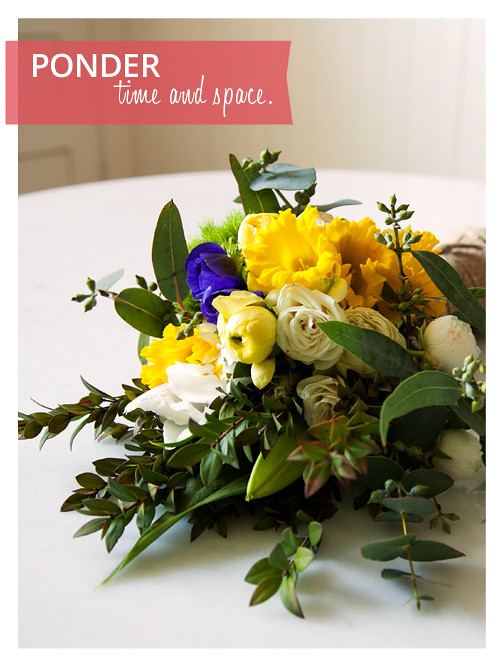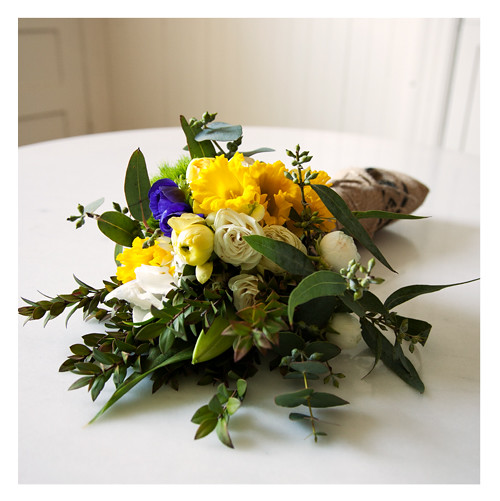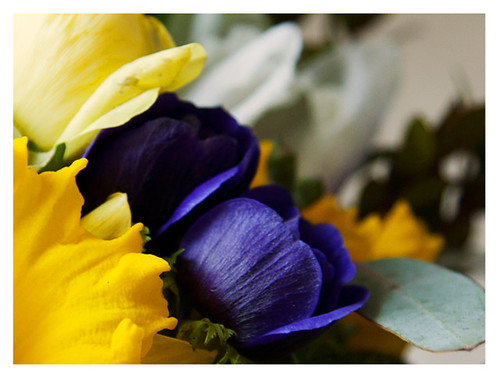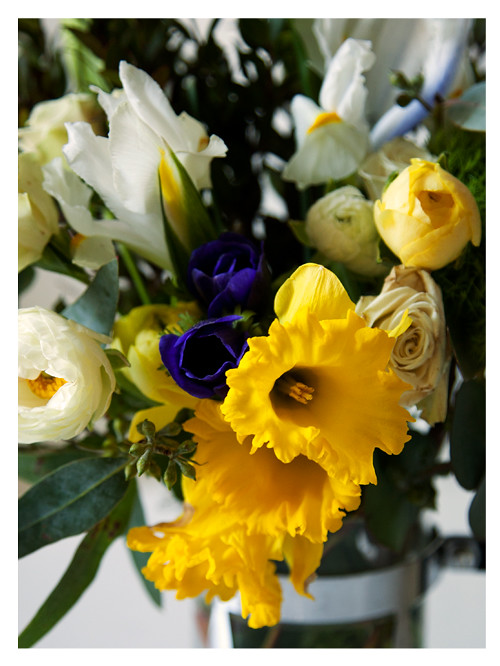Feeling overwhelmed. Unsure what to do next. Creative ruts. Writer's block. They're all names for the same feeling. The feeling we get when we don't leave time and space for ourselves. That feeling we're meant to do more, we just don't know what. That feeling we push aside, saying one day we'll figure it out. But, we need to stop. We need to take regular breaks where we give ourselves time and space to just experience what's going on around us and to reflect.

This past weekend, I watched Gates giggle as flies tickled her face as she let them land on her eyelashes and cheeks. My natural instinct and of many others would probably have been to swat them away. But, did you know flies actually play a role in our ecosystem? I didn't; I'd always just assumed a fly was a pest. Not true according to University of California Integrated Pest Management. Some flies help pollinate crops. Others help keep aphid populations in check.
You're probably wondering why I'm telling you a story about flies. Because an unplanned interaction, one not boxed in between appointments that must be kept, can lead to discovery.


"Whenever I get innovative ideas, usually it's because I've given myself some free time to think and space away from daily tasks at work. In other words, I have allowed my brain to think freely, which lets new ideas enter in and percolate for some creative thought."
-Scott MacFarland, "Where Does Your Innovation Strategy Begin"
How many times have ideas started to form, been just out of grasp, but instead of waiting patiently for them, you've jumped up and rushed off to the next adventure?
Tips for Taking Care of You
Capture your half-formed or seemingly random ideas. Have a notepad or journal near you at all times. Rather than beat yourself up trying to remember that great idea you had while washing dishes after the fact, briefly stop what you're doing and write it down. Don't like writing? Try voice memos.
Review your notes once a month or once a quarter. Set aside a day or a half-day where you have no obligations. Guard this time. The only structure you should follow is review your notes and then see where your mind goes. Record your wanderings and inspiration for future projects.
Create a space where you can go and let your mind wander. You don't need to set aside an entire room for this, but you'll want a place in your house or in your neighborhood where you can go and detach from the everyday. It's a device free space. And it should be one that's visually relaxing to you. If you like strong lines and architectural forms, find a public space in your city where you can look up at your skyline. If you like flowers, why not bring flowers inside and arrange them or just examine them closely?
Begin carving out regular time for yourself. Start with a goal of once a month for an hour. Once you're doing that regularly (for three to six months), expand to once a week for fifteen to twenty minutes. After you have a sustained weekly practice (for six to eight weeks), try a daily moment for five to ten minutes. Your goal is to find a practice, daily, weekly, or monthly that works for you.
"To not to have entirely wasted one’s life seems to be a worthy accomplishment, if only for myself."
-Charles Bukowski, as quoted in "Charles Bukowski on Quitting His Day Job & Doing What He Loved."

Resources for Mindful Living
If you're still struggling with giving yourself time and space without judgement, these previous posts maybe helpful:
- Five tips for intentionally using (and not using) your time
- Five tips for starting and maintaining a journaling practice
- Making time for weekly reflection (a weekly activity using Instagram posts)
- Practicing appreciation
P.S. Don't feel like commenting? Strike up a conversation with me elsewhere: Twitter, Instagram, Facebook, Google+, or Pinterest.
Credits: All layouts designed by and images taken by Eden Hensley Silverstein for The Road to the Good Life.
